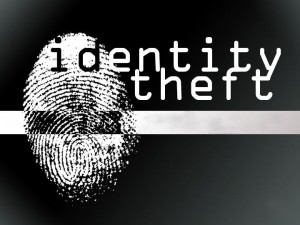
Identity theft happens when someone uses your Social Security number or other personal information to open new accounts, make purchases, or get a tax refund.
www.identitytheft.gov is the federal government’s one-stop resource to help you report and recover from identity theft. The site provides step-by-step advice and helpful resources like easy to print checklists and sample letters. If you believe that someone is using your personal information, visit www.identitytheft.gov.
Warning Signs
There are many ways that you might discover that someone is using your information. You might get a notice from the IRS or find unfamiliar accounts on your credit report. You might notice strange withdrawals from your bank account, get bills that aren’t yours, or get calls about debts that you don’t owe. If you see one of these warning signs of identity theft, act quickly. Taking the following steps will help you limit the damage.
- Call the companies where you know fraud occurred.
- Place a fraud alert on your credit reports and get copies of your report.
- Report the identity theft to the FTC (steps how can be found on www.identitytheft.gov)
- File a report with your local police department.
Depending on your situation, your next step might be closing accounts opened in your name, or reporting fraudulent charges to your credit card company.
If Your Info is Lost or Stolen
Did you get a notice that says a company lost your personal information in a data breach? Did you lose your wallet? Or learn that an online account was hacked? There are steps you should take to help protect yourself from identity theft, depending on what type of information was compromised.
What information was lost or stolen?
- Social Security Number
- Online Login or Password
- Debit/Credit Card Number
- Bank Account Info
- Driver's License Info
- If a company responsible for exposing your information offers you free credit monitoring, take advantage of it.
- Get your free credit reports from www.annualcreditreport.com. Check for any accounts or charges you don’t recognize.
- Consider placing a “credit freeze”. A credit freeze makes it harder for someone to open a new account in your name. If you place a freeze, be ready to take a few extra steps the next time you apply for a new credit card or cell-or any service that requires a credit check.
- Try to file your taxes early-before a scammer can. Tax identity theft happens when someone uses your Social Security number to get a tax refund or a job. Respond right away to letters from the IRS.
- Don’t believe anyone who calls and says you’ll be arrested unless you pay for taxes or debt-even if they have part or all of your Social Security number, or they say they’re from the IRS.
- Continue to check your credit reports and www.annualcreditreport.com. You can order a free report from each of the three credit reporting companies once a year.
- Log in to that account and change your password. If possible, also change your username. If you can’t log in, contact the company. Ask them how you can recover or shut down the account.
- If you use the same password anywhere else, change that too.
- Is it a financial site, or is your credit card number stored? Check your account for any charges that you don’t recognize.
- Contact your bank or credit card company to cancel your card and request a new one.
- Review your transactions regularly. Make sure no one misused your card. If you find fraudulent charges, call the fraud department and get them removed.
- If you have automatic payments set up, update them with your new card number.
- Check your credit report at www.annualcreditreport.com.
- Contact your bank to close the account and open a new one.
- Review your transactions regularly to make sure no one misused your account. If you find fraudulent charges or withdrawals, call the fraud department and get them removed.
- If you have automatic payments set up, update them with your new bank account information.
- Check your credit report at www.annualcreditreport.com.
- Contact your nearest Secretary of State office to report a lost or stolen driver’s license. The state might flag your license number in case someone tries to use it, or they might suggest that you apply for a duplicate.
- Check your credit report at www.annualcreditreport.com.
Protecting your identity
While identity theft can happen to anyone, there are some things you can do to reduce your risk. Here are five ways to make protecting your identity part of your everyday routine:
- Read your credit card and bank statements carefully and often.
- Know your payment due dates. If a bill doesn’t show up when you expect it, look into it.
- Read the statements from your health insurance plan. Make sure the claims paid match the care you got.
- Shred any documents with personal and financial information.
- Review each of your three credit reports at least once a year. Visit www.annualcreditreport.com to get your free reports. If you space them out by ordering one every three months, you will have year-round coverage for free.
